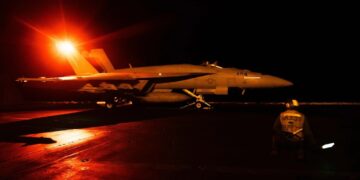December 6, 2018
Statement: Ending U.S. military support for Saudi-UAE coalition would aid efforts to end Yemen’s civil war
FOR IMMEDIATE RELEASE:
December 6, 2018
Contact: press@defensepriorities.org
WASHINGTON, DC—Following this week’s Yemen peace talks, Defense Priorities Senior Fellow and Defense Scholar Benjamin H. Friedman issued the following statement:
“The U.N.-sponsored peace talks in Sweden could create progress toward a resolution of Yemen’s civil war, which has produced the world’s worst humanitarian disaster.
“The United States can be principled in Yemen because U.S. security is not at stake there. Iran is not poised to take over Yemen and would not benefit if it did. The Saudis will not stop selling oil if the United States stops aiding their military attacks there. If anything, backing the Saudi-UAE-led war harms U.S. security by making enemies and exacerbating the chaotic conditions that have allowed al-Qaeda and ISIS to take root. U.S. interests and values align in Yemen. We can support peace without ambivalence.
“The United States should end the military support that enables our Gulf client states, Saudi Arabia, the United Arab Emirates, and their allies, to bomb Yemen. The Trump administration’s step last month to end mid-air refueling of Saudi-coalition aircraft was overdue but insufficient; intelligence sharing and munitions sales for that war should also stop. That step would pressure the Saudi coalition to end its military campaign and make it easier for the warring Yemeni parties to cut a peace deal.”
More on Yemen

Featuring Rosemary Kelanic
July 27, 2025

Featuring Rosemary Kelanic
May 20, 2025

Featuring Rosemary Kelanic
May 17, 2025

By Kevin Joseph
May 12, 2025




